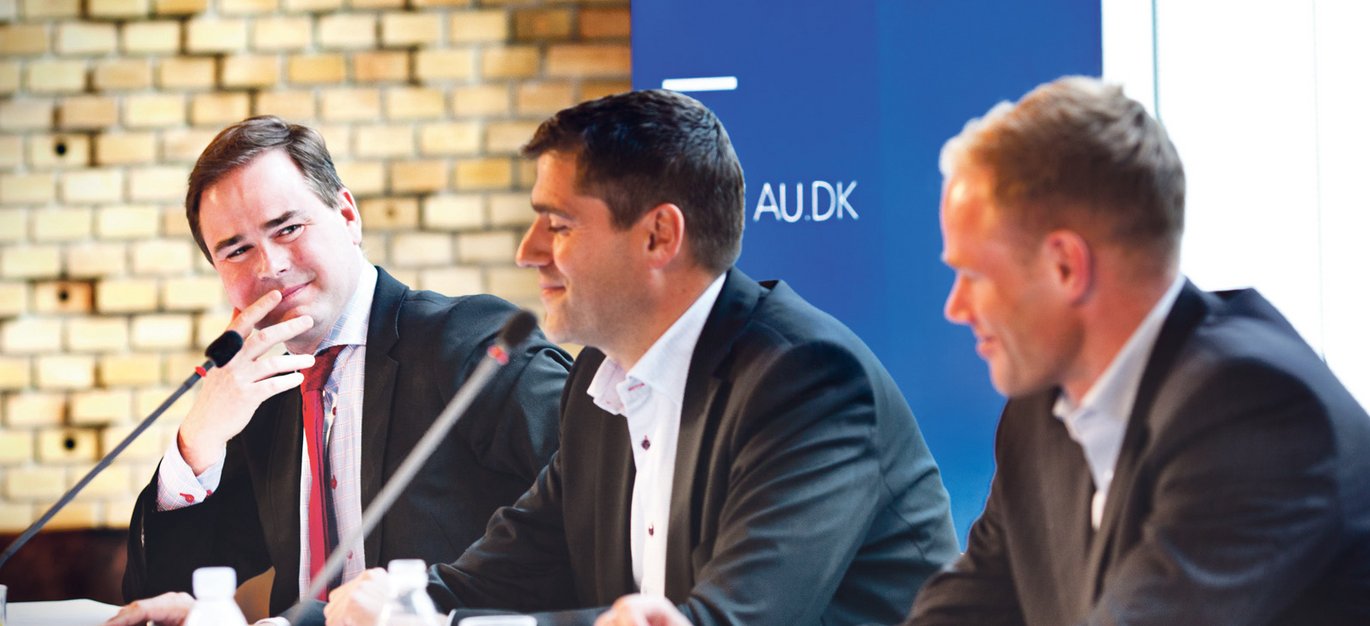EU Presidency less prestigious than it used to be
The Presidency of the EU has lost some of its status since the Lisbon Treaty. It now tends to involve keeping good order at meetings rather than generating extra kudos for the country in the driving seat. This may affect the commitment of member states.

The premises on which the EU Presidency is based have changed significantly since Denmark performed the task in 2002. It is now far harder for the country which holds the Presidency to leave its political mark on the EU; so we will not be experiencing the kind of scene that took place in 2002, when the former Danish Prime Minister Anders Fogh Rasmussen was able to confirm the expansion of the EU from 15 to 25 countries with the words “We have an agreement”.
The change in the role of the EU Presidency was debated at Aarhus University on 2 May at a special event arranged by the Department of Political Science and Government, with associate professor Derek Beach and assistant professor Rasmus Brun Pedersen as members of the panel.
Rasmus Brun Pedersen explained that the main purpose of the Lisbon Treaty was to create a more democratic and efficient EU. Among other things, this meant giving more power to the European Parliament in the EU’s legislative process. At the same time, the role of EU President was introduced and a high-ranking representative of the EU’s foreign policy was appointed. The goal was to ensure the continuity and efficiency of EU legislation and representation; but at the same time the government of the country holding the Presidency now had a lower profile during its six-month term.
He added that the idea of rotating the Presidency was to ensure equal representation for all member states as well as ensuring legitimacy by sharing the leadership. But the change in structure had also led to a dilemma. On the one hand there was a need for an effective and efficient institution; while on the other hand each member state needed to raise its profile and maximise the kudos it gained from the Presidency. There was no chance of raising your profile under a rotating Presidency, which was increasingly becoming a legislative machine instead of being a platform on which state leaders could bask in the attention of the international media, he said.
The Presidency is less attractive
Derek Beach, an associate professor in political science and government, has researched the impact of the Lisbon Treaty on the EU Presidency. He believes that the reduction in opportunities to raise your own profile has made the Presidency less attractive to member states. During the debate he pointed out that the Presidency could no longer put its own subjects on the agenda, and that the role of prime ministers had been reduced a great deal with the introduction of permanent EU representatives. The result was that member states now invested less time and money in the Presidency, which might have an impact on the legislative process. He also had a conspiracy theory relating to the reason for the change, claiming that the Presidency had been rendered so unattractive for the member states that it would ultimately be possible to transfer the role to the permanent EU representatives, which often ran a Presidency in close collaboration with the secretariat of the Council of Ministers. He added that there was already a striking similarity between the Presidency’s programme and the main issues supported by the Commission. The Belgian Presidency in 2010 was often regarded as one of the most effective Presidencies there had ever been – and this was at a time when Belgium had no government and therefore no particular agenda of its own. This example revealed that the Presidency had become an administrative task, said Derek Beach.
However, he did praise the ability of the Danish EU Presidency to gain the support of all the non-Euro member states (apart from the Czech Republic and the UK) for the finance pact. He said this had been a major achievement, and that Denmark was good at building bridges. But that in the negotiations within the Council of Ministers, where legislation is adopted, Denmark was no more than an administrator.
80 per cent of the agenda decided in advance
Even though the Danish Presidency has now launched its final sprint prior to handing over the baton to Cyprus in just over a month, the Danish Minister for European Affairs Nicolai Wammen had taken the time to attend the debate on EU expansion that took place at Aarhus University on 7 May. He gave UNIvers his views on the EU Presidency.
He has already called the Presidency “a Rye Bread Presidency” and compared the task to creating “A bridge over troubled water”. He acknowledged that a good deal of the agenda had been decided in advance.
“80 per cent of the agenda comes from the previous Presidency, 10 per cent is about crises which you can’t predict, and the remaining 10 per cent is your own agenda,” said the Minister.
Despite this admission, he believes that the Presidency is very important for Denmark.
“You sit at the head of the table and it’s your serve. We are very interested in helping to ensure that the EU moves ahead in the right direction, and the Presidency helps us to achieve this. For instance, we have put growth and job creation high on the agenda – including green growth,” said Nicolai Wammen.
